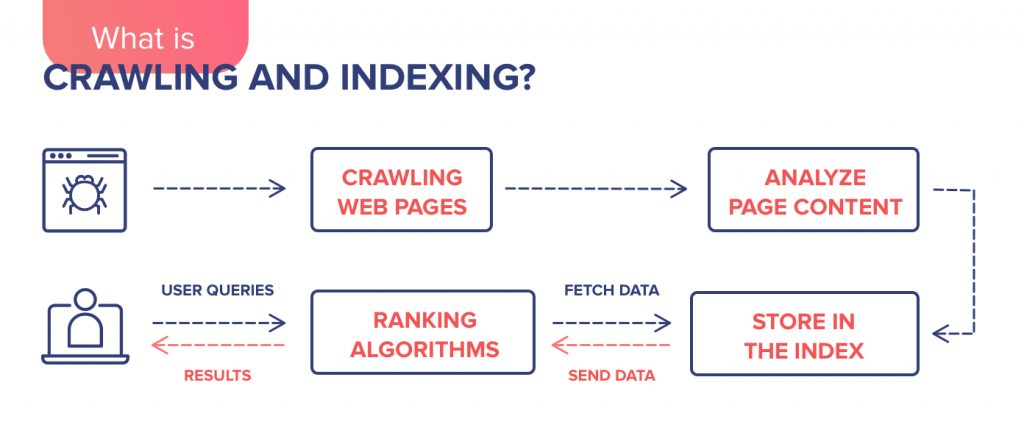If you want organic traffic to your website, you will have to get your web page indexed. Have you ever thought what it takes Google to display the search results when a user makes any query? This process is known as indexing.
It means downloading data from web pages and storing them into a database so that search engines can process the data to display the most relevant results to users. Indexation is paramount to have your website shown in search results when a user makes a related query.

Google spiders do not stop after indexing your page. They keep indexing. It means whenever you insert new information – whether it is entirely a new page or you are adding a new piece of content to the existing page – Google spiders will index it. Frequent indexing improves your ranking.
While indexing a web page, Google spiders will evaluate what the page is about and pay heed to meta titles, meta tags and alt tags of images. Without indexation, you cannot get a rank. Indexing can take a lot of time – weeks or months.
If you sit back, it will take a long time to build your audience. You can get your page quickly indexed by implementing the following steps, giving you more time to grow your audience.
Use internal links
Search engines crawl through HTML links from one page to another. Ahrefs can help you know about pages with high authority. You can link the high authority pages to those you want to get indexed.
Make sure that these pages are relevant to each other. It might be tempting to establish a link between any of the pages, but the bounce rate will go up if you do so. Keep in mind that you need to make these pages relevant to each other. Google crawlers are smart enough to find out your pages have the authority that they do not deserve.
Block low-quality pages
Content is king, but it must be user-friendly and serve the purpose of the user. Poor content will deteriorate the ranking of your website. If you have a ton of pages with irrelevant content,
Google will whittle down the number of times it crawls the pages. It is crucial to convince Google that you provide high-quality content to your users. Search engines aim at indexing pages that enhance the user experience.
Try to evaluate the whole of the content. You will need to scrap old content that is no longer great. Pages that serve no value to users get listed in the categories like 301 redirects, deleted 404, and No Index.
Choose a preferred domain
It does not seem to be an issue from your point of view, but it can make Google muzzy if you do not set a preferred domain. A user can type the URL of your website with or without WWW. Google treats both versions as different websites.
It is intrinsic to tell Google that both of them are the same sites and the one you would like to prefer. Otherwise, Google spiders will index the same page under different URLs. By setting a preferred domain, you inform Google that all pages to be indexed under the same URL.
It is not a tricky job to set a preferred domain. First off, you need to add both the versions of your domain. Go to the setting under the gear icon where you will find an option at the top of the page to set a preferred domain
Crawl stats
Crawl stats manifest the record of activities Google performed on your website in a period of the last 90 days. It will give you a complete statistical report about crawling and indexing.
You should also take a look at a crawl error report. It will give you an overview of URL issues for over 90 days. It can help you quickly identify the issues keeping your pages from being indexed.
Create robots.txt
It is a must to create this file to inform Google spiders what to index and what not to index. This file acts as a commander as it tells the crawler where it can go and where it cannot. If robots.txt file says do not index, crawlers will not move on. It is crucial to have this file to control over indexation.
There are various other ways to get your pages indexed quickly, such as internal linking and inbound linking. It is not complicated to get a page indexed as long as it serves the purpose to the user.
Bear in mind the content quality and users’ needs. If you have an online business, you must get all pages indexed within a couple of minutes. If you are struggling to get it done, you should hire an expert who could analyse where you are slipping up. In case of lack of funds, you can take out bad credit loans with direct lenders.
You can also have some more information about URL Inspection Tools Training here:










